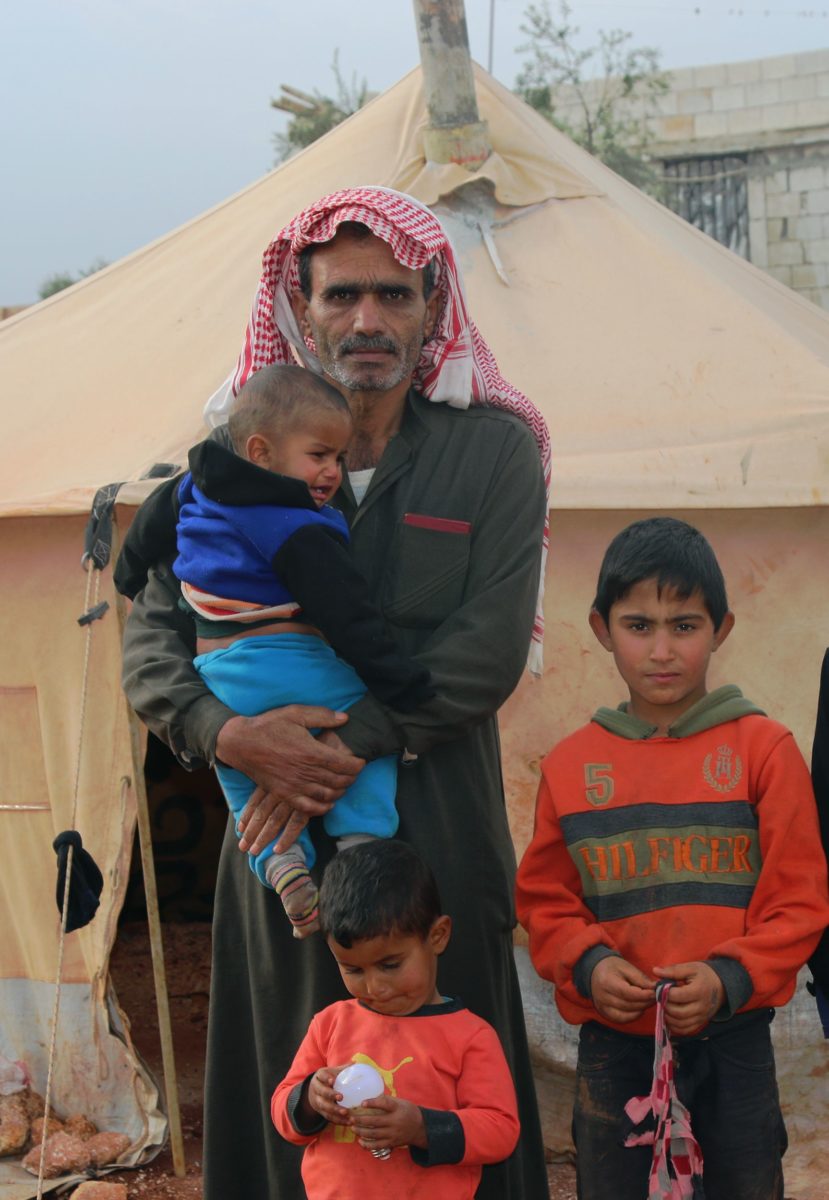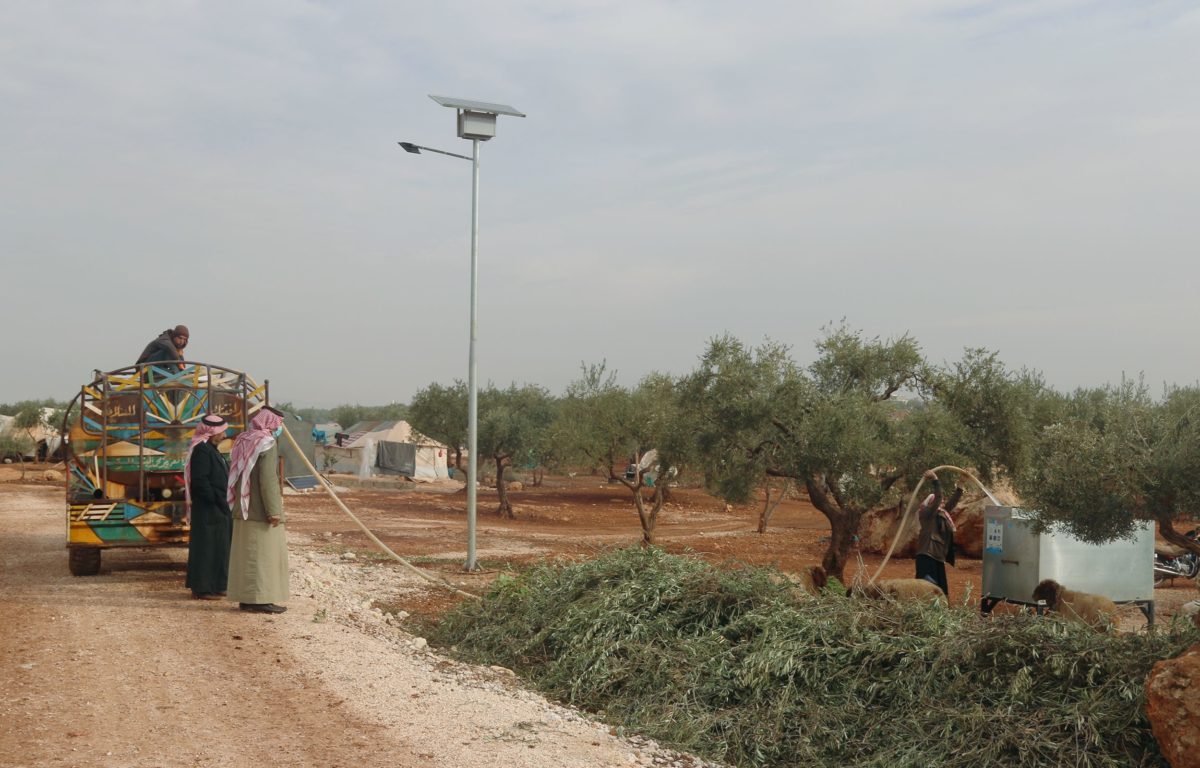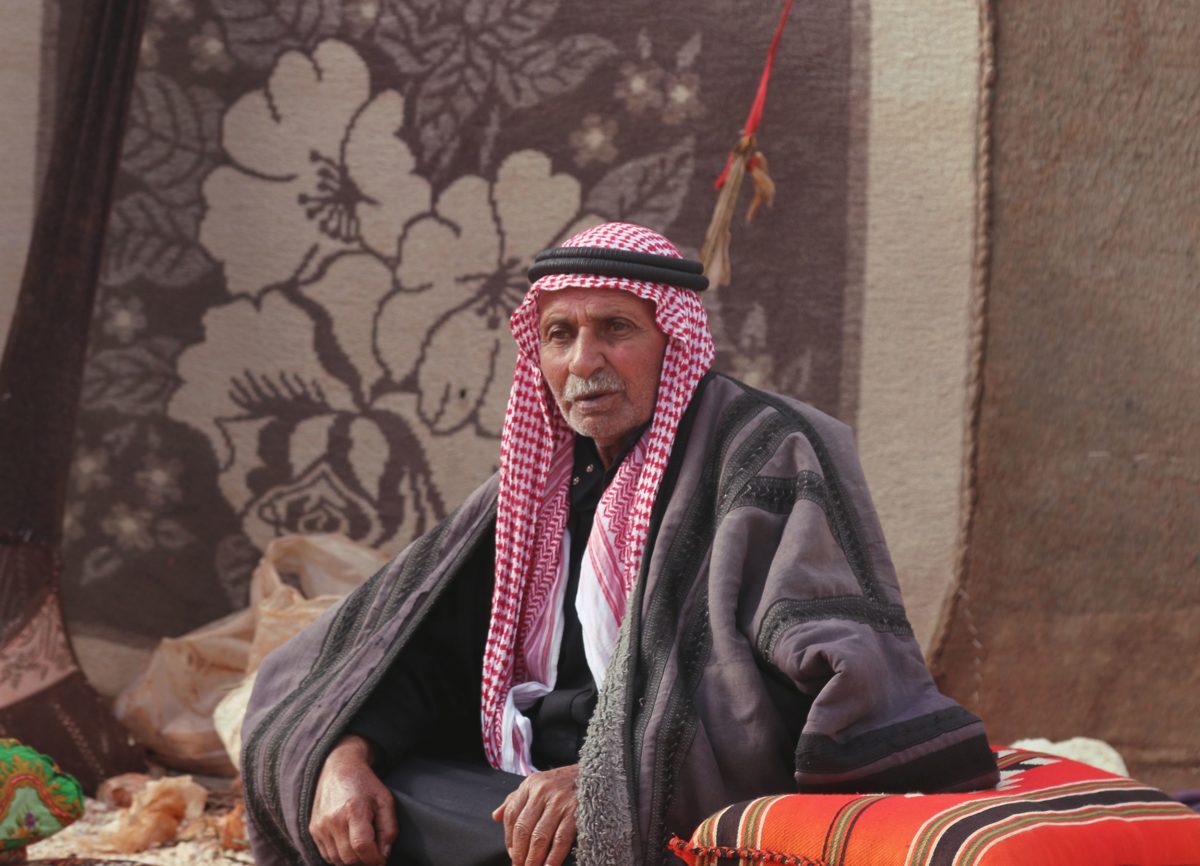 Stories
Stories
April 27, 2022 • 5 min read
The 2020 flooding of Tawhid, a tented informal settlement in Idleb, Syria, is still fresh in Abu Khaled’s mind. Since the outbreak of the conflict in 2011, 50-year-old Abu Khaled and his family of 11 had been displaced five times before finally settling in Tawhid.
“It was stormy and dark outside the tent,” says Abu Khaled, “which we had tried to secure to the ground, against the heavy wind, by putting stones on each side of it. The sound of the raindrops was so loud it almost subdued the distress calls that began to rise from each of the nearby tents.”
Life in an informal settlement set on agricultural land, with limited infrastructure and little access to services, can be very challenging. Families like Abu Khaled’s, responsible for the care of young children and elderly parents, are further burdened. Yet after being forced to move constantly in recent years, Abu Khaled was happy to find some stability when the family settled in Tawhid.

Abu Khaled and his young children in Tawhid Camp.
Surviving the winter storm
When the storms hit Tawhid in December 2020, Abu Khaled ran from his family’s tent to respond to his neighbours’ calls for help. He then heard that his parent’s sector of the camp was already under water.
“I rushed towards them, but the rainwater flooded the road, no one could cross. I spent two hours trying to reach my family’s shelter. It is a single room tent that was a kitchen, a bedroom, and a guest room at the same time,” Abu Khaled remembers.
“When I reached them, water had penetrated the tent and everything inside the tent was mixed with mud. I carried my parents out of the tent on my back. My mother told me that her things were all washed away by the rain. I relieved her, saying what matters is that you and my father are fine. The rest can be compensated,” he adds.
Picking up the pieces
Abu Khaled says he had to wait for four days for the roads to dry out before he could visit his parents’ sunken tent to assess the damage.
“Neighbours helped us wash some of the things. When we finished drying the tent and putting the things inside it, we were so happy. Imagine the irony of fate; we became happy when we were able to return to reside in a tent that was the source of the pain we lived.”
According to Tawhid Camp’s management, floods in December 2020 damaged more than a third of the tents. “That winter we witnessed great suffering. Many of the tents were not elevated from the ground, and were swept away by the torrents,” says Abu Yamen, the camp’s director.
Damage to the camp’s infrastructure also had long-term impacts on the residents’ access to essential needs. “The camp’s roads were not paved,” Abu Yamen explains, “and with the beginning of the rainfall, they quickly turned into mud. Drinking water is brought to the camp by trucks. But last winter, with the roads covered in mud and impassable, many families were left without water.”

Tawhid displacement camp, Idleb, Syria.
GOAL’s Response
Between June 2021 and March 2022, GOAL worked in 17 informal settlements in Northwest Syria to improve living conditions and access to services for around 20,000 internally displaced people who have sought refuge in camps. GOAL’s Shelter teams have restored camps’ roads, constructed rainwater drainage systems, levelled tents, and installed solar lights.
GOAL’s intervention in Tawhid aimed to protect the camp’s residents from the impact of flooding and improve conditions and access to services. Families were also supported financially to help put food on the table and access firewoood to survive the unforgiving winter.
“This winter we were not afraid,” says Abu Yemen, “a while ago, GOAL’s teams visited us, assessed the needs of our camp, and then paved the roads with stone so that they do not become muddy in winter and therefore allow access to water and sanitation services without interruption.
“In addition, GOAL lit the streets, installing solar-powered lamps. This made it easier and safer for camp residents , such as women and children, to access services at night. Today the roads are lit, and there is no longer any fear,” adds Abu Yemen.
More challenges ahead
GOAL teams are providing crucial support to displaced communities in Idleb. But many challenges remain for families like Abu Khaled’s. “GOAL’s work has helped people effectively,” Abu Khaled says. “But every day we live a new tragedy – we think that it cannot get worse but the next day comes with a greater calamity.
“I cannot send any of my children to school, as schools are too far away. There is no income, expenses are growing, and the aid is becoming insufficient. If someone becomes ill, they have to worry about transportation to access healthcare. Everything is expensive, including food and water.”

Abu Khaled’s father, Abu Hussein in Tawhid Camp.
While grateful for the support, Abu Khaled’s 87-year-old father, Abu Hussein, reminisces about the old days before conflict tore his life apart. He never imagined he would spend his retirement in a displacement camp,
“(Before the war) I used to spend my day visiting my neighbours and relatives, working on my land, and meeting my children. Now, when the sun rises, I sit on this mattress and then go back to the tent when it gets dark, eat the food available to me, and sleep.”
Help us support families like Abu Khaled’s by donating today.
